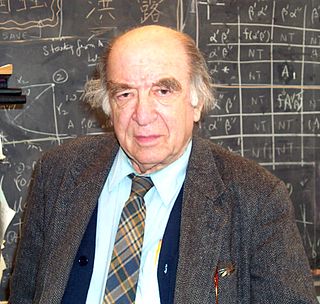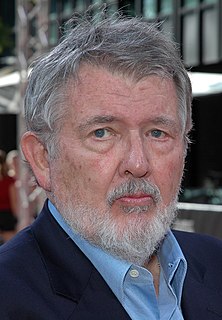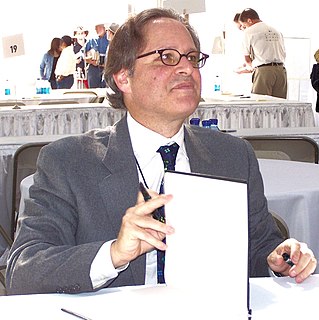A Quote by Leonid Hurwicz
When you talk about the economic process of a society, sometimes we separate it into two stories. One is about monetary variables. But then, we very often assume the underlying arrangement, the other variable, is 'perfect competition,' which means people do whatever they are supposed to do.
Related Quotes
Conversations about films are always funny. I would say a majority of people want to talk about what were the more obvious successes; the big box office films. Other people wanting to be more sensitive to you want to talk about the ones that maybe didn't make a lot of money, but they think you might have a special feeling about. And then other people sometimes want to help you by suggesting that you should have done this or that in the movie, that that would have helped you a great deal in whatever capacity.
The British were doing crime stories first, but the British thing is a very different thing. There, the stories are about restoring a break in the fabric of society. The American thing has never been worrying about breaks in the fabric of society, but about people doing their job, whether it's police procedurals or criminals or whatever.
Thirty years ago, if you said the country was living beyond its means, people would have thought about economics. Now, if you talk about the country, or the planet living beyond its means, you think about the environment. We are taking out more than we are giving back. We are consuming energy, water, and other natural resources in a way that is leading to huge and often irreversible damage to the planet. So too are most other developed nations. And so too will China and India if they follow the same path of economic development as us
You can't talk about the environment, you can't talk about political correctness, affirmative action and all the other innumerable things that freedom is about, unless you have a free society based upon the integrity of the individual. If you have a responsible society, these other issues will not come up in a responsible society, and that is what freedom is all about.
One of the most consistent findings about low performing schools and students is that "home variables" (parental income and education, etc.) are more predictive than "school variables." But, having said that, we as a society can have much more effect on the school variables than on the home variables, so it's important and valuable to focus on the question of which interventions in schools are most effective and which are least effective.
We really have a close friendship with Christian Petzold, which means we can be more frank and open towards each other, always with total respect. But, we push each other a bit further and further always, and we're always still curious about each other. And when he talks about a story he's thinking of doing, then the whole process is so special because I'm involved in a very early stage and I have the feeling I can, and not only, influence anything about my character, but about the whole story that my character's in.
Artists talk about art in sort of straightforward terms, more like the way you talk about plumbing fixtures. Does it function well? Does it bring the hot water up from the cellar efficiently, or does it lose too much thermodynamic energy in the process? Artists are also very ruthless with each other and can be very brutal in evaluating each other's work because their criteria is almost more mechanistic. Does it do what it's supposed to be doing in an efficient way? That doesn't mean that intention is not part of the conversation, but it's not the foreground.
To get a person's real opinion, ask what she thinks everyone else believes... If people truly hold a particular belief, they are more likely to think that others agree or have had similar experiences. [People] tend to assume that other people have had life histories at least somewhat similar to their own. When we talk about other people, we are often talking about ourselves, whether we know it ourselves.




































